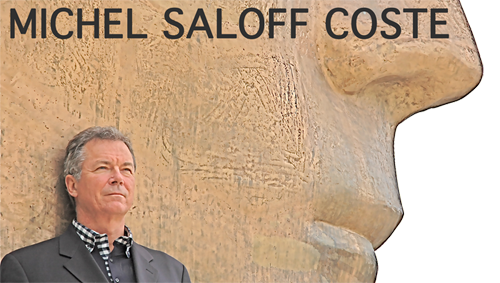In late 2010, New York Mayor Michael Bloomberg’s administration put out a request for proposal for a new kind of university program. Recognizing the importance of establishing New York City as a technology hub, he hoped to attract a leading university to establish a graduate school in engineering and computer science in Manhattan, and proposed that it be built on Roosevelt Island.
(To listen to an unabridged audio interview with Dean Daniel Huttenlocher, please visit this link. This is the eighth article in the education technology innovation series. To read the prior seven articles including interviews with the heads of Khan Academy, Udacity, Coursera, and edX, please visit this link. To read future articles in the series, please click the “Follow” link above.)
Peter High: Dan, what is Cornell NYC Tech’s mission?
Daniel Huttenlocher: Our mission is to increase the amount of technology talent in the New York area and in the nation with a particular kind of twist or take on technology talent both in terms of the students and faculty that we are attracting. It is people who have a passion for really deep technological invention and innovation, and at the same time the breadth to engage with real world problems and bring that technology out of the laboratory and classroom into the real world.
We are a new graduate school in New York City in tech disciplines, and we are focused on the disciplines related to the digital information age and the tech sector more generally. We have masters and doctoral students and programs in New York City. We are roughly a year in, as we commenced our beta class in January 2013 with a Masters of Engineering in Computer Science as the first-degree program that we’re offering.
PH: How did you choose New York City and why not the university’s primary campus in Ithaca, New York?
DH: Cornell as a university had gone through a strategic planning exercise in 2010 and one of the things identified in it was that the high tech related fields increasingly have close ties between academic research and the commercial sector. These ties are not just important to the development of new commercially successful technologies, but also to fundamental academic research missions. Ithaca is a wonderful place in all sorts of ways, but the amount of high tech industry in the area is small.
Recommended by Forbes
We started to think as an institution about how to get more active in everyday engagement between our computer science and engineering activities and the commercial sector. In late 2010, New York Mayor Michael Bloomberg’s administration asked for proposals to establish a new graduate school of what the City calls Applied Sciences and Engineering here in New York. So that seemed very attractive to us given some of the planning we had already been doing and given that Cornell has a big presence not just in upstate New York but already here in the city of New York. A number of our Ithaca based programs have pretty significant operations in New York City including our medical school, our architecture school, and our industrial and labor relations school. New York City seemed like a great place for us to be doing that in the technology sector also given our broad New York mission.
PH: To what extent did you draw parallels to other academic institutions like Stanford or MIT that have close ties to the venture and the high tech world?
DH: In putting together our proposal at the time of the competition, we looked at things that we thought would be special about the growth of the tech sector in New York City. We looked a number of successful cases of universities interacting with local industry and helping drive its growth, including both MIT in Boston and Stanford in the Bay area, among others. New York City is probably the best place in the world to engage with a very broad set of industries and consumers. The way I like to think about it is that in New York you can find a critical mass of people passionate about anything, and when you’re developing new technology products, it’s increasingly important to engage passionate customers and passionate users early in your design process. Interactive design in the technology development world entails collaborating with real users.
Therefore, our proposal focused on customer centric and user centric aspect of technology and design because we felt that was something that would really excel in New York. We looked at a couple of broad areas as organizing themes. First was media technology, which we refer to as connective media. It is not the passive old-line media but the more interactive technology driven media.

Cornell NYC Tech Dean Daniel Huttenlocher
We also focused on what we call the built environment, which includes smart buildings, smart cities, and smaller scale items like personal assist of robotic devices.
PH: As you thought about building the resources for the organization, how have you balanced between traditional academics (people who are from the academic world) and people with startup experience?

Cornell NYC Tech’s Future Campus

